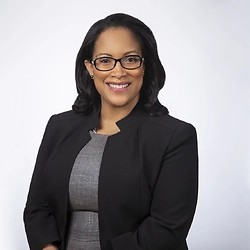The FCC’s National Security Mandate: The Rise of the Council on National Security
The Federal Communications Commission (FCC) has taken significant steps to institutionalize national security within its regulatory framework through the creation of the Council on National Security (CNS). Chaired by Chairman Brendan Carr and overseen by National Security Counsel Adam Chan, the CNS is structured to facilitate cross-bureau coordination and enhance the FCC’s involvement in safeguarding the security of U.S. communications infrastructure.
A Renewed Focus on National Defense
As Chan pointed out during a recent fireside chat, the FCC’s original statutory mandate under the Communications Act of 1934 included national defense as a core purpose. While the agency has not traditionally been viewed as a national security actor, the CNS seeks to restore and modernize that role, with a focus on emerging threats, particularly those posed by China.
Chan, who previously served on the House Select Committee on Strategic Competition with the Chinese Communist Party and in the Justice Department’s National Security Division, brings a strategic legal perspective to the role. His appointment underscores Chairman Carr’s long-standing emphasis on foreign influence in U.S. telecom networks.
Importantly, Chan emphasized that the FCC is seeking to operate within the bounds of its delegated authority, acknowledging that its national security role is shaped by congressional mandates and must be carefully coordinated with other federal agencies.
The Council’s Three Strategic Pillars
The CNS is structured around three mission areas:
- Supply Chain Security: Reducing U.S. reliance on Chinese-manufactured technologies, including drones and telecom hardware.
- Cyber and Espionage Threats: Coordinating with intelligence agencies to mitigate risks such as malware embedded in critical infrastructure.
- U.S. Leadership in Critical Technologies: Promoting domestic innovation in AI, 5G/6G, and satellite communications through regulatory streamlining and strategic partnerships.
These priorities are reflected in recent FCC actions, including a Public Notice on whether to expand the Covered List to include connected vehicle technologies from Chinese- and Russian-controlled entities.
The “Bad Labs” Proceeding
One of the Council’s first major initiatives was the so-called “Bad Labs” proceeding. The FCC adopted rules to prohibit recognition of testing labs owned or controlled by foreign adversaries – many of which are based in China and previously certified equipment for U.S. markets. The Commission also proposed further restrictions on all China-based labs and sought comment on how to incentivize domestic and allied-country testing capacity.
Wiley’s client alert, FCC Bans “Bad Labs” Connected to Foreign Adversaries, provides a detailed summary of the Order and Further Notice of Proposed Rulemaking (FNPRM), including implications for certification bodies, test labs, and lab accreditation entities. The proceeding also features in Wiley’s broader analysis of the FCC’s national security posture in its proceedings proposing new rules related to foreign ownership of FCC authorization holders.
Enforcement and Interagency Coordination
Just days after the CNS was announced, Chairman Carr launched an investigation into the U.S. operations of several Chinese companies on the Covered List, including Huawei, ZTE, Hytera, Hikvision, and Dahua. The FCC issued subpoenas and Letters of Inquiry to determine whether these entities were continuing to operate through subsidiaries or indirect channels – demonstrating the Council’s shift from policy to enforcement.
Balancing Security and Investment
The FCC’s approach aligns with broader federal efforts to protect national security while encouraging trusted investment in critical infrastructure. This includes support for the goals outlined in the White House’s National Security Presidential Memorandum (NSPM) announcing an “America First Investment Policy,” which calls for a hard line on adversarial threats while streamlining processes for allies and domestic innovators.
The Commission is actively working to streamline foreign ownership reviews for trusted partners and prioritize speed for American investment. During the fireside chat, Chan underscored that increasing the number of American-owned submarine cables is not only an economic imperative but a national security priority, ensuring resilience, redundancy, and control over critical communications infrastructure.
This dual-track approach is evident in the FCC’s submarine cable proceeding, which aims to bolster infrastructure resilience while reducing regulatory friction for trusted entities.
A Call to Action for Industry
Chan also encouraged industry stakeholders to play an active role in supporting the Council’s mission. He urged companies to bring forward evidence of false or misleading information in competitor filings and to share ideas for regulatory reform, whether through deregulation or targeted rulemaking, which could accelerate infrastructure deployment and enhance U.S. technological leadership. The FCC welcomes both formal comments in open dockets and informal engagement to help shape a secure and innovation-friendly regulatory environment.
Looking Ahead
The CNS aims to deliver measurable outcomes across its three pillars and to elevate the FCC’s stature as a national security stakeholder. As the Council matures, its success will depend on continued interagency collaboration, stakeholder engagement, and the ability to adapt to evolving threats.
As the FCC’s national security posture continues to evolve, its long-term impact will be shaped by how effectively it integrates into the broader national security ecosystem. As Adam Chan noted, the FCC is not a one-stop shop for national security, but it plays an increasingly visible role in identifying risks to communications infrastructure and coordinating with lead agencies to address them. Its influence will rest on its ability to anticipate emerging risks, foster trusted partnerships, and deliver timely, technically sound interventions that complement the work of lead security agencies.
To stay informed on Executive Orders and announcements from the Trump Administration, please visit our dedicated resource center below.
Authors
 Partner
Partner Consulting Counsel
Consulting Counsel

